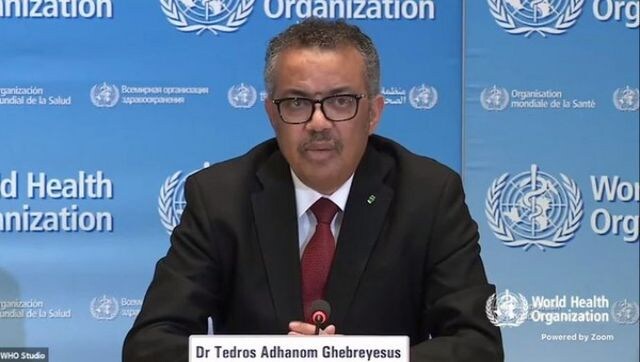Hundreds of millions of life years lost to COVID-19 pandemic, according to WHO
The pandemic wrecked worldwide devastation and killed roughly seven million people, with the total death toll estimated to be closer to 20 million

Director-General of the World Health Organisation (WHO) Dr. Tedros Adhanom Ghebreyesus.
According to the World Health Organisation, about 337 million life years were lost in the first two years of the Covid-19 pandemic, when millions of people died prematurely.
Noncommunicable diseases (NCDs) such as heart disease, cancer, and diabetes pose an increasing danger, according to the UN health agency’s annual global statistics report.
According to WHO, the most striking conclusion, based on data up to 2022, was the estimate of how many years of life Covid had taken.
Related Articles
The pandemic wrecked worldwide devastation and killed roughly seven million people, with the total death toll estimated to be closer to 20 million.
The WHO report lays bare how the virus itself and the broader impact of the crisis abruptly cut short the lives of millions of people.
While the WHO officially registered 5.4 million Covid deaths in 2020 and 2021, its excess mortality data shows around 14.9 million people actually likely died due to the crisis over that period.
Even more striking, perhaps, it said the statistics show that during those two years alone, Covid resulted in a loss globally of 336.8 million years that otherwise would have been lived.
“It’s like losing 22 years of life for every excess death,” Samira Asma, WHO’s assistant chief for data and analytics, told reporters ahead of the launch.
Off-track
“Significant inequities underpin the distribution of Covid-19 cases and deaths, as well as access to vaccinations,” the report said.
The WHO warned that the pandemic had helped throw off-track many health-related indicators that had been improving for years.
During the first two decades of the century, the world saw significant improvements in maternal and child health, with deaths falling by one-third and one-half respectively.
The incidence of infectious diseases like HIV, tuberculosis and malaria also declined significantly, as did the risk of premature death from NCDs.
Global life expectancy rose from 67 years in 2000 to 73 in 2019.
But after the pandemic hit, existing inequalities in access to high-quality health care, routine immunisations and financial protection deepened, among other things sending the long-improving trends on malaria and TB in the opposite direction.
‘Stark message’
And while the world still enjoys health progress overall, the share of deaths caused each year by NCDs has grown, the study showed.
In 2000, around 61 per cent of global deaths annually were linked to NCDs. By 2019, almost 74 per cent were.
“If this trend continues, NCDs are projected to account for about 86 per cent of the 90 million annual deaths by mid-century,” WHO said in a statement.
“The report sends a stark message on the threat of noncommunicable diseases, which take an immense and increasing toll,” WHO chief Tedros Adhanom Ghebreyesus said.
The findings, he said, show the need for “a substantial increase in investments in health and health systems to get back on track towards the Sustainable Development Goals.”
NCD deaths were increasing despite a reduction in exposure to many health risks, including tobacco use, alcohol consumption and unsafe water and sanitation, WHO said.
Exposure to other risks like air pollution however remained high, it said.
The report warned in particular that the prevalence of obesity was growing with no sign of reversal.
Read all the Latest News, Trending News, Cricket News, Bollywood News,
India News and Entertainment News here. Follow us on Facebook, Twitter and Instagram.
also read

World Hand Hygiene Day 2023: History, significance and all you need to know
WHO on World Hand Hygiene Day 2023 aims to put focus on civil society organizations (CSOs)

COVID-19: India logs 2,380 new cases, 15 deaths
At 27,212, the active cases comprise 0.06 per cent of the total infections. The national COVID-19 recovery rate was recorded at 98.75 per cent

World sport returns to China after years of Covid cancellations
With the exception of last year's Beijing Winter Olympics, which took place in a 'bubble', almost all global sport ground to a halt in China after the pandemic emerged there in late 2019


